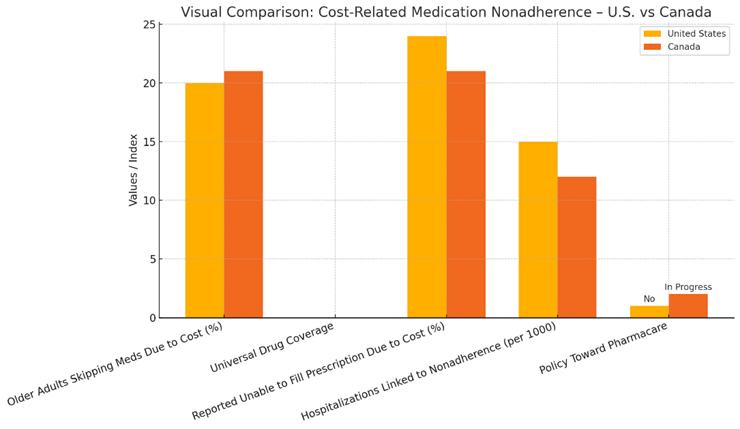
1 minute read
Clinical Consequences of Delayed Medication Access cont'd
The Parliamentary Budget Officer projected that national pharmacare could result in $4 to $11 billion in annual savings, largely from improved health outcomes and reduced hospitalizations due to better medication adherence (PBO,2017). However, political will and intergovernmental cooperation remain hurdles. Until pharmacare is realized, many Canadians remain underinsured and continue to face dangerous delays in accessing the medications they need.
The Hidden Cost of Nonadherence
While the financial burden of medication costs is clearly documented in the U.S., the Canadian healthcare system, despite its many strengths, also suffers from medication access inequities. CRN leads not only to the progression of chronic diseases but also to cascading costs for the healthcare system due to avoidable acute care and long-term complications. Both countries reveal that without addressing cost-related access delays, even the most innovative treatments lose their value. In Canada, advancing pharmacare is not merely a policy debate, it is a public health necessity.









